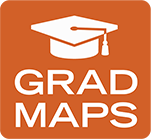The Department of Exercise and Nutrition Sciences within the Moyes College of Education offers an undergraduate program in Exercise and Sport Science with three emphasis options: Strength & Conditioning, Clinical Exercise Physiology, and Exercise Science. Students may declare one or more emphases. The Exercise and Sport Science major program prepares students for a variety of career options, several national certifications, and for entering graduate and professional schools.
Graduates will have demonstrated competence and knowledge in anatomy, physiology, fitness assessment, kinesiology, biomechanics, exercise physiology, exercise programming and implementation, exercise leadership and client education, nutrition, health, strength and conditioning, weight lifting, aerobic activities, and more.
- Program Prerequisite: Not required.
- Minor: Not required.
- Grade Requirements: A GPA of 2.75 or higher in all courses required for this major. The overall GPA must be 2.00 or better. No more than one “D” is acceptable.
- Credit Hour Requirements: A total of 120 credit hours is required for graduation. Eleven to 15 credit hours of required support courses maybe used as general education credit. A total of 40 upper division credit hours is required for graduation with 21 - 41 upper division hours possible within the required courses for this major.
- Program Code: 5049BS with one of the following emphasis codes Strength & Conditioning (5066), Clinical Exercise Physiology(5067), or Exercise Science(5051).
- CIPC: 310505
Advisement
All Exercise and Sport Science students are encouraged to meet with a faculty advisor or the department advisement coordinator each semester for course and program advisement. Call 801-626-6696 or email the ENS Department Advisor matthewsmith20@weber.edu for more information or to schedule an appointment. (Also refer to the Department Advisor Referral List.)
 Use Grad MAPs to plan your degree
Use Grad MAPs to plan your degree
Admission Requirements
Make application with the ENS Department and declare program of study (see Student Access and Success, Services and Information ).
General Education
Refer to Degree Requirements for Bachelor of Science requirements.
Program Learning Outcomes
1. Reflective and empirical thinking
Students will problem solve and/or make decisions based on deep reflection and empirical, logical, thinking.
2. Quantitative literacy
Students will demonstrate the comprehension of quantitative data and the ability to reason using quantitative analysis.
3. Effective communication
Students will practice effective communication using scientific writing, active listening, and verbal and nonverbal communication.
4. Cultural competency
Students will describe the impact of values and cultures of their own and of others on health literacy, health risks, and physical activity and other lifestyle behaviors related to health and wellness.
5. Exercise physiology knowledge
Students will accurately apply exercise physiology concepts in conducting and evaluating health and fitness assessments, developing exercise programs, and prescribing exercise for health and performance improvement.
6. Kinesiology & biomechanics knowledge
Students will effectively use muscle mechanics and biomechanical concepts to evaluate musculoskeletal movements, thereby facilitating performance enhancement and mitigating potential injury risks.
7. Health & fitness assessment
Students will independently conduct health and fitness assessments and interpret results based on the standards established by American College of Sports Medicine, National Strength and Conditioning Association, and other relevant organizations.
8. Exercise program design
Students will design exercise prescription programs appropriate to the target populations using sound scientific principles and reasoning.